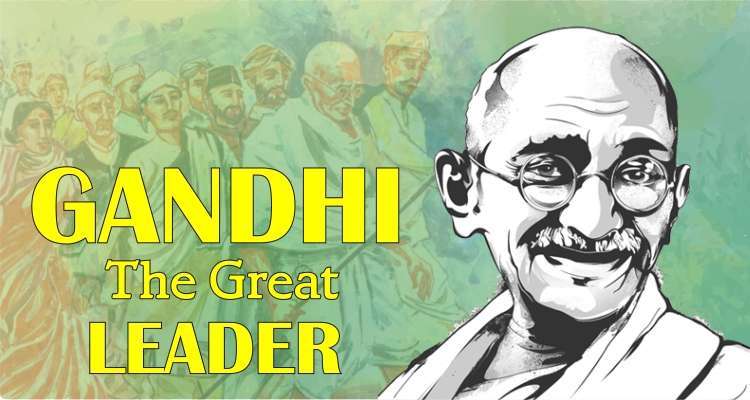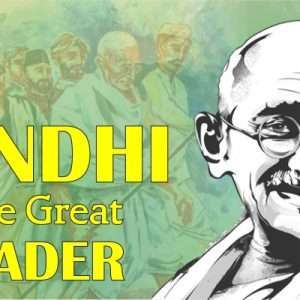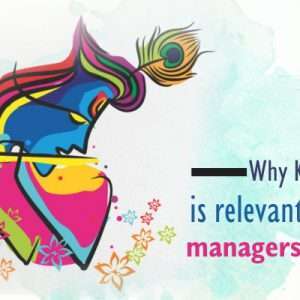“Live as if you were to die tomorrow. Learn as if you were to live forever.” – Mahatma Gandhi
This one is the very common quote of Mahatma Gandhi. But if you feel the depth of this line, you will get what this uncommon man said in a very common way. Let’s take a look into his life to understanding this thing.
Mahatma Gandhi is universally accepted as an exemplary model of ethical and moral life, with a rare blending of personal and public life, the principles and practices, the immediate and the eternal. Dr Albert Einstein famously said on the occasion of Mahatma Gandhi’s 70th birthday that “Generations to come, it may well be, will scarce believe that such a man as this one ever in flesh and blood walked upon this Earth.” Gandhiji was merely a freedom fighter, or a national leader, or a revolutionary, or a smart statesman?
Where complexities have increased many a fold, the steps and ways shown by Gandhiji are proving more and more relevant in today’s time.
Make a team of talented people
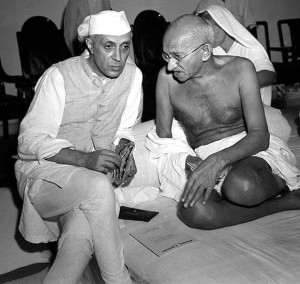
One of the basic qualities of a smart leader is recognized talent. He discovers talent and keeps them with him on his side to discuss, understand, and seek reviews on the variety of issues. He shares his dream with them and converts it in a one shared dream for the entire team.
Gandhiji had a team of super talented and highly skilled people. The team in a true sense was inspired by his dream and helped him in communicating his message to the mass. Gandhiji formulated strategies and his team successfully implemented them effectively across India. This made him very effective compared to any other leader in the world.
Honesty and transparency
Leadership starts from the very virtue of ‘honesty’. Honesty automatically leads to transparency as an honest leader has nothing to hide from anyone. Gandhiji’s honesty and transparency were beyond question. His life was an open book.
Selfless Leader
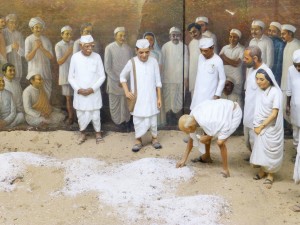
He chose to lead the public for public’s own good purpose.
A leader never thinks for his/her purpose only. He/she does anything for the mass. He/she thinks for others before thinking for own self. He/she choose difficulties for own self.
Inspire and motivate others and ensuring involvement of others
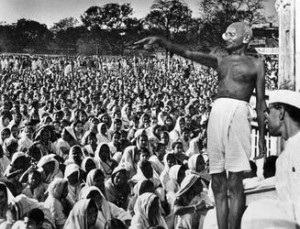
Without a doubt, we can say that Gandhiji inspired the masses and other freedom fighters in India. Gandhiji knew that it would require the involvement of everyone in order to achieve success in the freedom struggle. Hence, he introduced “the swadeshi movement, charkha, picketing of foreign goods, Dandy march, Satyagraha” etc and involved almost every Indian in his battle with all these programs. It was possible that his leadership was based on self-reliance and non-cooperation, something everyone could adopt and feel that they were the part of the freedom struggle synergizing the common man.
Determination
Gandhiji believed in non-violence and peace. He was a freedom fighter but differed from other freedom fighters because of his determination. He never gave up and he never lost hope, even when his struggle met with failure. He didn’t let go of his belief in non-violence.
A determination is a very important point of leadership. As many times leaders have to face the failure or criticism but he/she should be firm in the mind what changes or revolution he/she wants to see in the society or business through his/her thoughts.
Showing by doing
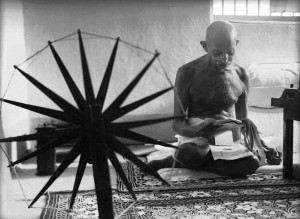
Mahatma Gandhi’s life itself is a textbook. He never asked anyone to do anything but he showed everyone how to do it. He is also a true role model for the new generation since he was himself an ideal example for everything he spoke and taught. He inspires because his life still shows the most beautiful picture of love, peace, honesty and truth.
Leaders are expected to show how to do things or how to make changes not just order people to do those things. They create new ways; they see the problems in the society and find the solutions and then inspire people to walk on the new way.
Although Gandhi preached non-violence, compassion, truth, service and sacrifice in a different time and context, all of these ideas still apply. One look at the trouble and strife in the world and he/she could argue that more so than ever before.
In fact, these values should be integral to the way one lives his/her life and the way one does a business.
Why? Because business is an extension of one’s self.
It’s very easy to fall into the trap of thinking that being successful in business requires focusing on profits, getting before one can give, beating the competition and aggressively pursuing what one wants at all costs.
Of course action and self-effort are always required. But there is a way to do business that is based on service, being classy in how we deal with others, remaining authentic and letting ourselves be guided by the innate intelligence and creativity each of us possesses.
Mahatma Gandhi remains the ultimate leader, from whose life and thought there is so much that every one of us can learn and try to absorb in our lives.

